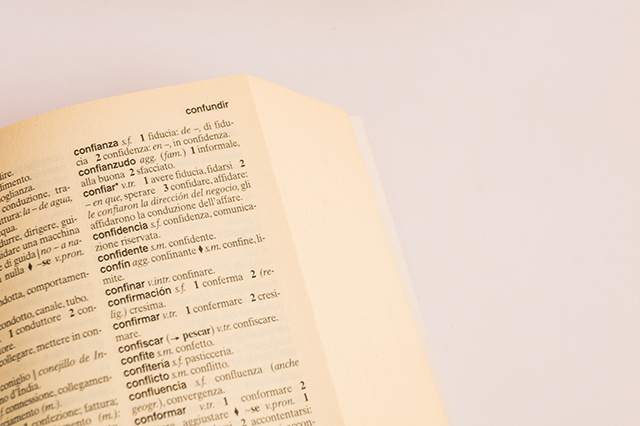In English grammar writing, verbs are referred to as action words that describe what the subject is doing in a sentence, and they include words such as eat, sing, drive, etc. Together with nouns, verbs are the primary part of a sentence or phrase that narrate what is taking place. Without them, it would be impossible to convey full thoughts, even in their simplest forms.
Worse still, correct verb usage is one of the hardest elements to master in English writing, especially for new learners and non-English native speakers. And that’s where an incorrect verb form checker like ours comes in. Widely used in the academic writing domain and professional writing field alike, this tool helps you to easily identify subject-verb agreement errors, as well as other grammar-related in your texts.
But before we talk more about the verb form identifier, let’s explore the different types of verb tenses and their ideal writing setting.
Different Types of Verb Tenses and Where They Can Be Used
There are three main verb tenses in English writing; past, present, and future. These tenses can further be categorized into 12 different types.
Present
Present simple– refers to actions or events that exist not or are happening all the time. For example: “I play football.”
Present continuous – used to describe actions or events happening now or unfinished. It is mainly used when the action is temporary. For example, “He is speaking to my dad at the moment.”
Present perfect – refers to actions or events that started in the past and happening in the present time. For example, “I have spoken to him multiple times.”
Present perfect continuous – used to show that an action or event started in the past and is continuing at present. “She has been riding since she was 3 years old.”
Past Tense
Simple past– refers to an event or action that happened in the past. For example, “Yesterday, I ran 10 miles.”
Past continuous– used to refer to an action or event that started in the past and still continuing. It can also be used for unfinished events or actions due to interruptions. For example, “I was eating with Mum last night when Dad arrived.”
Past perfect– used to clarify that one action or event happened before another in the past. For example, “I had sung the song before I turned 10.”
Past perfect continuous – refers to an action or event that started in the past and continued to occur in the past. For example, “I had been singing for many years before Dan joined the choir.”
Future
Simple future– refers to actions or events that are yet to happen in the present time, but are expected to occur in the future. For example, “You’ll see him again next week.”
Future continuous– used to refer to an unfinished action or event but expected to occur in the future for an expected length of time. For example, “By Summer next year, I will be running like a professional athlete.”
Future perfect– describe events or actions that will happen between the present and the future. For example, “I will have run at least 1000km by January next year”
Future perfect continuous– refers to actions that will continue happening up until a particular time or point in the future. For example, “By tomorrow afternoon, I will have practiced singing for 3 hours.”
Academic Writing Tenses
As you can see, there are multiple verb tenses in English writing. As such, understanding how to apply them in different forms of writing can be challenging. So how do you mix past, present, and future tenses without making your readers giddy?
In this section, we are going to look at the appropriate verb tenses and how they can be applied in different forms of writing using a verb mood identifier.
Simple present
Whether you are using an action verb identifier or not, you need to use simple present tenses to describe a habitual action or a general truth in academic writing. Simple present tenses indicate that your statements are by and large true in the past, present, and future.
For example, “The school admits students whether or not they have school fees.”
Simple past
Simple past tenses are used in academic writing to describe completed actions or events that happened at a specific point in the past.
For example, “Jane (1998) researched many areas of human psychology.”
Present perfect
Present perfect tenses in academic writing are used to refer to an action or event that occurred at an unspecified time in the past. They are also used to introduce background information in a sentence or paragraph. After this information, the tenses shift from the present perfect verbs to simple past verbs.
For example, “Many academic institutions have studied how entrepreneurs can be successful beyond the first two years in business. They discovered common themes across all small business owners.”
Future verb tenses
Used in academic writing to describe an action or event that will happen at a particular point in the future.
For example, “I will conduct structured interviews in my study.”
Research Materials Tenses
When writing a research project, it is important to use a healthy mix of present and past tense in your introduction section. Just like in academic writing, present tenses are used to discuss something that is generally true, whereas the simple past tenses are used to convey earlier research efforts, either by you or by another group. When concluding the introduction statement of your research report, it is more appropriate to use simple past or present perfect verb tenses.
Novels Writing Tenses
When it comes to novel writing, the most appropriate verbs to use are simple past tenses and the third person. For example, “He ran his usual route to the gym, but as he reached the door he came upon a thug. If you want to relay a sense of urgency or simplify things in your novel, writing using present tenses would be ideal.
Common Verb-Related Mistakes When Writing
Verb tense errors can easily lead to miscommunication. As such, it is important to avoid them at all costs. Below, we are going to explore common verb mistakes when writing and how to avoid them.
Subject-verb disagreement
Whether in singular or plural, the subject and verb in your sentences must agree in number. If the subject is singular, its verb must also be singular. The same happens when dealing with plurals.
Inconsistent verb usage
As a student or professional writer, the easiest way to confuse your readers is to use incorrect verbs within the sentence or in the larger context of your writing.
For example:
Incorrect: We were on the way to the gym. Suddenly, it starts to rain.
Correct: We were on the way to the gym. Suddenly, it started to rain.
Sentence fragments
A sentence fragment occurs when a sentence doesn’t have one independent clause. It could be the lack of a subject, a verb, or both.
Verb tense shifting
Another major verb-related mistake that writers tend to make is using multiple tenses within a clause when talking about a single topic.
How Can Our Verb Identifier Help?
Our verb tense checker is one of the most advanced tools of its kind in the market. It helps identify all the verb-usage-related mistakes mentioned above, as well as other grammar-related errors in your work. Along with that, our verb finder online tool also incorporates other auxiliary editing features including:

Grammar checker
Our verb type identifier leverages advanced Artificial Intelligence and English grammar rules to analyze, pinpoint, and fix grammar and punctuation mistakes in your texts.

Run-on sentences checker
Our professional sentence verb identifier will also come in handy in helping you identify incomplete sentences, as well as correctly punctuate independent clauses in your work.

Plagiarism
This online verb identifier also comes with a comprehensive plagiarism checker, letting you easily identify and fix accidental plagiarism in your texts.
Benefits of Using Our Verb Tense Identifier
Whether you are a student, teacher, or professional writer, there are many benefits that come with using our verb finder tool online. They include but are not limited to the following:
Excellent Time Saver
The most obvious benefit of using our verb finder in sentence is its time-saving aspect. If you’ve ever tried editing and proofreading a long manuscript, you know all too well it is a time-consuming and draining affair. With the help of our verb finder tool, however, you can instantly identify and correct all mistakes in your texts.
Accurate Results
Although there are multiple verb tense identifier online tools on the market, not all are created equal. Some promise to offer the perfect result only to deliver mediocre results. Luckily for you, our verb tense finder leverages AI and English grammar to analyze your texts, giving it unmatched accuracy.
Cost-Effective Passive Verb Checker
Using our main verb identifier is significantly cheaper compared to hiring a professional editor. If you have ever tried hiring a human editor, chances are you know their services don’t come cheap. Still, you need to spend significant time going back and forth to clarify the editing tools. Luckily, our complete verb identifier comes with a free and paid-for version, so you don’t have to worry about breaking the bank.
Safe Verb Finder
Unlike most verb identifier online tools out there that save your texts in their local servers, our verb checker doesn’t save anything, reducing the chances of your texts or personal information falling in the wrong hands.
No Download Required
If you are rushing to meet a tight deadline, the last thing you want is to use an app that requires downloading. Our verb phrase finder works online, and you don’t need to download or install any app. All you need to do is copy-paste your work on the blank editor, click check, and the verb identifier tool will handle the rest.
Available 24/7
Like any other person, a professional human editor is limited by time constraints, and they need to rest. Using an online action verb finder like ours lets you detect verb-usage mistakes in your work, no matter the time or location.



